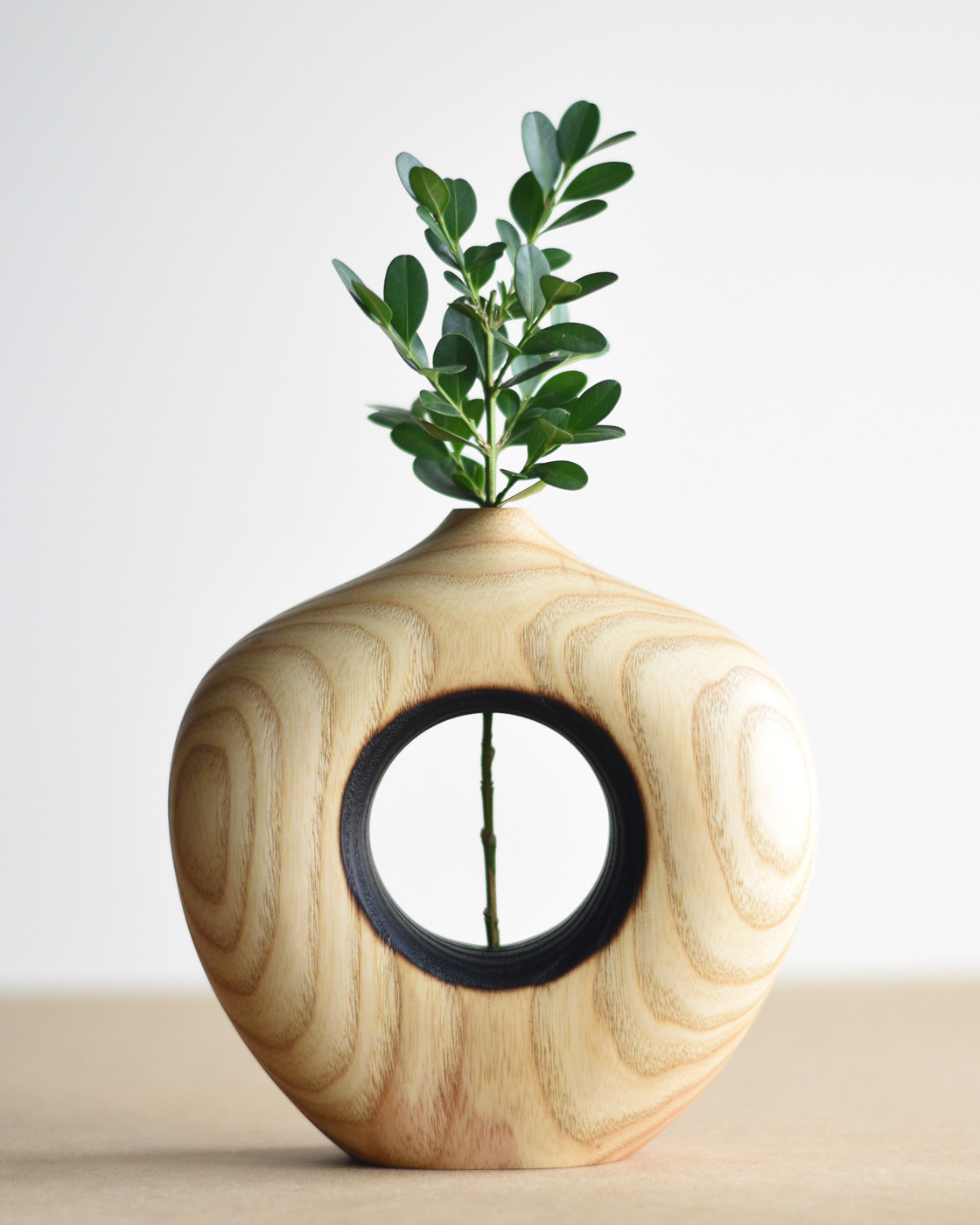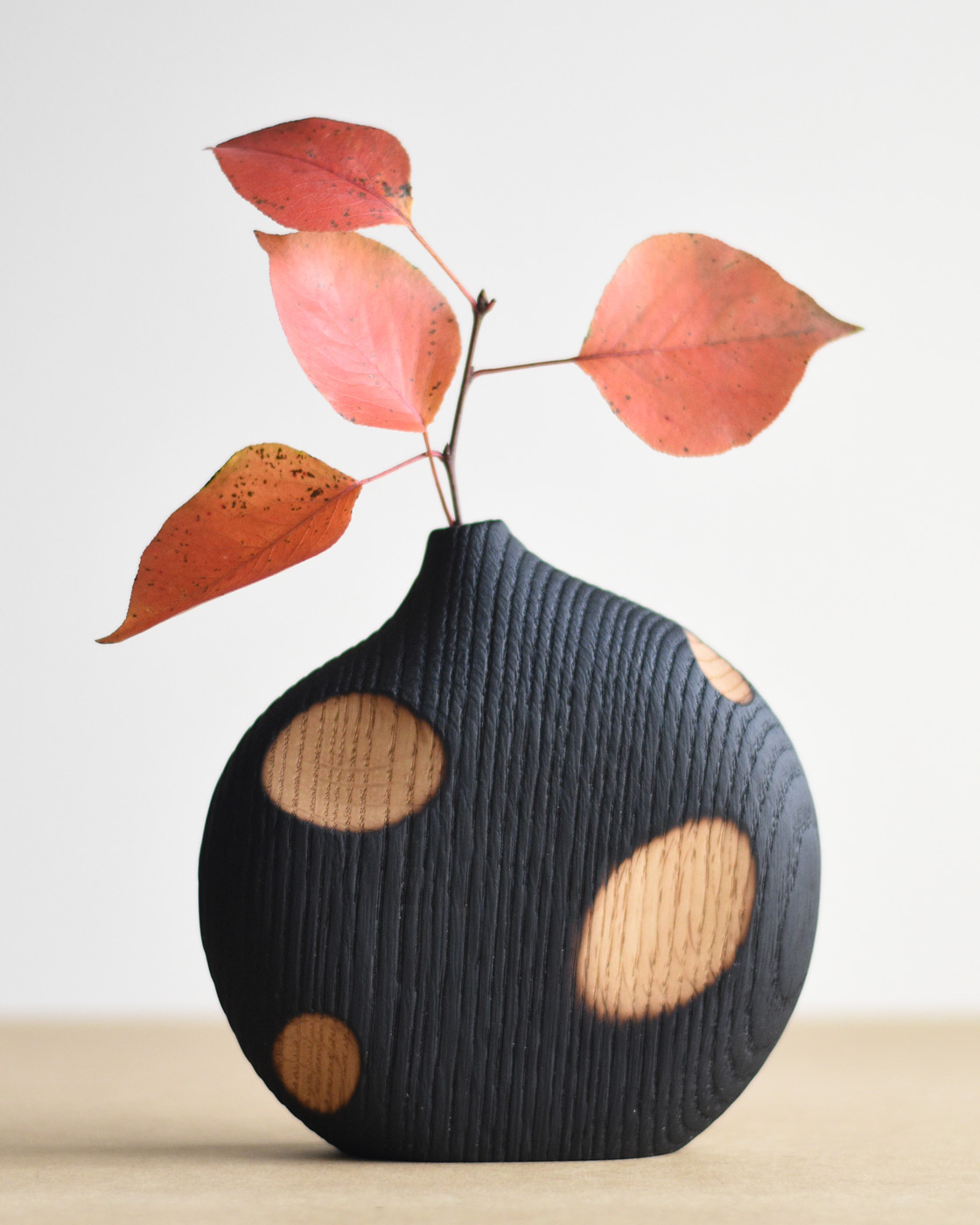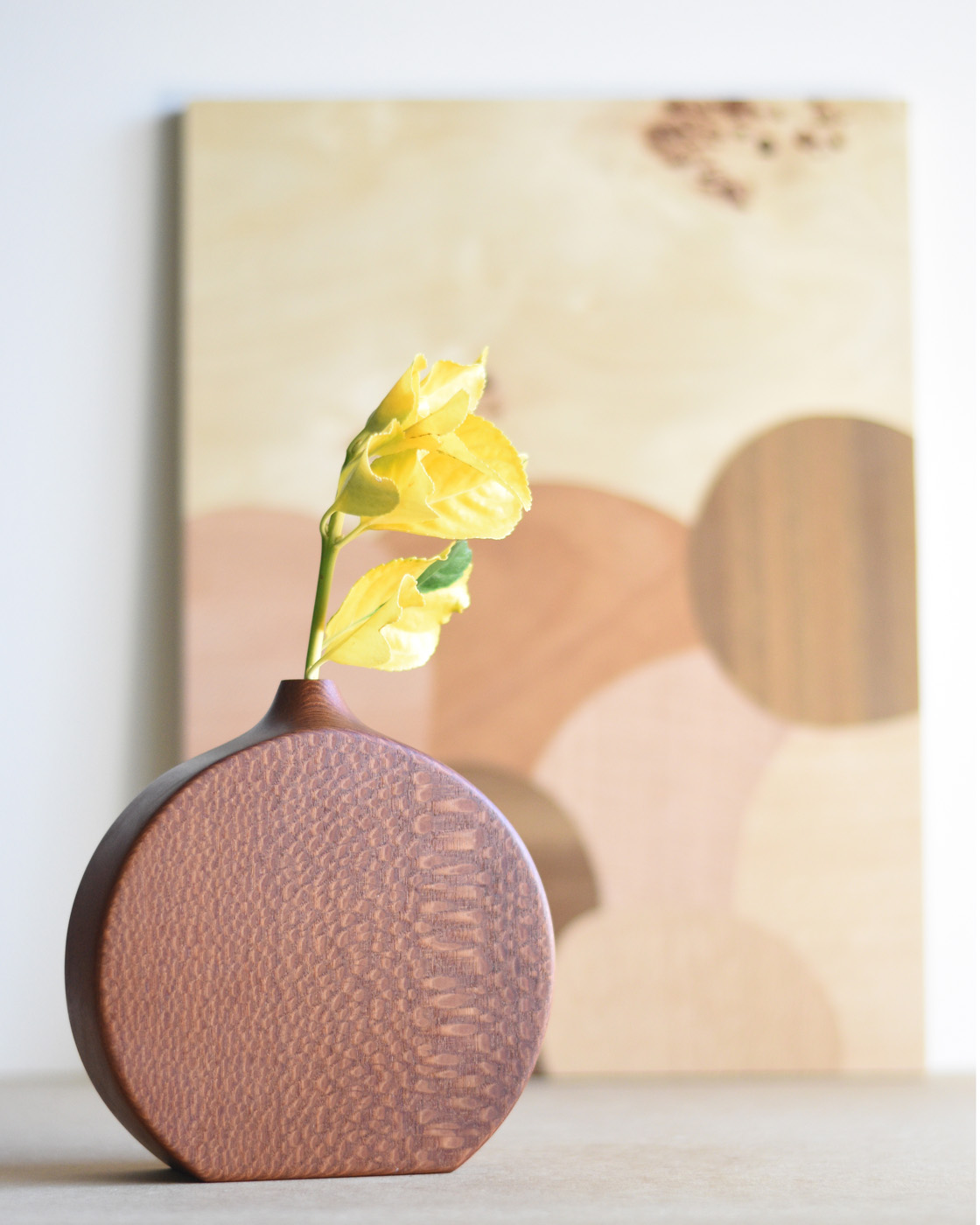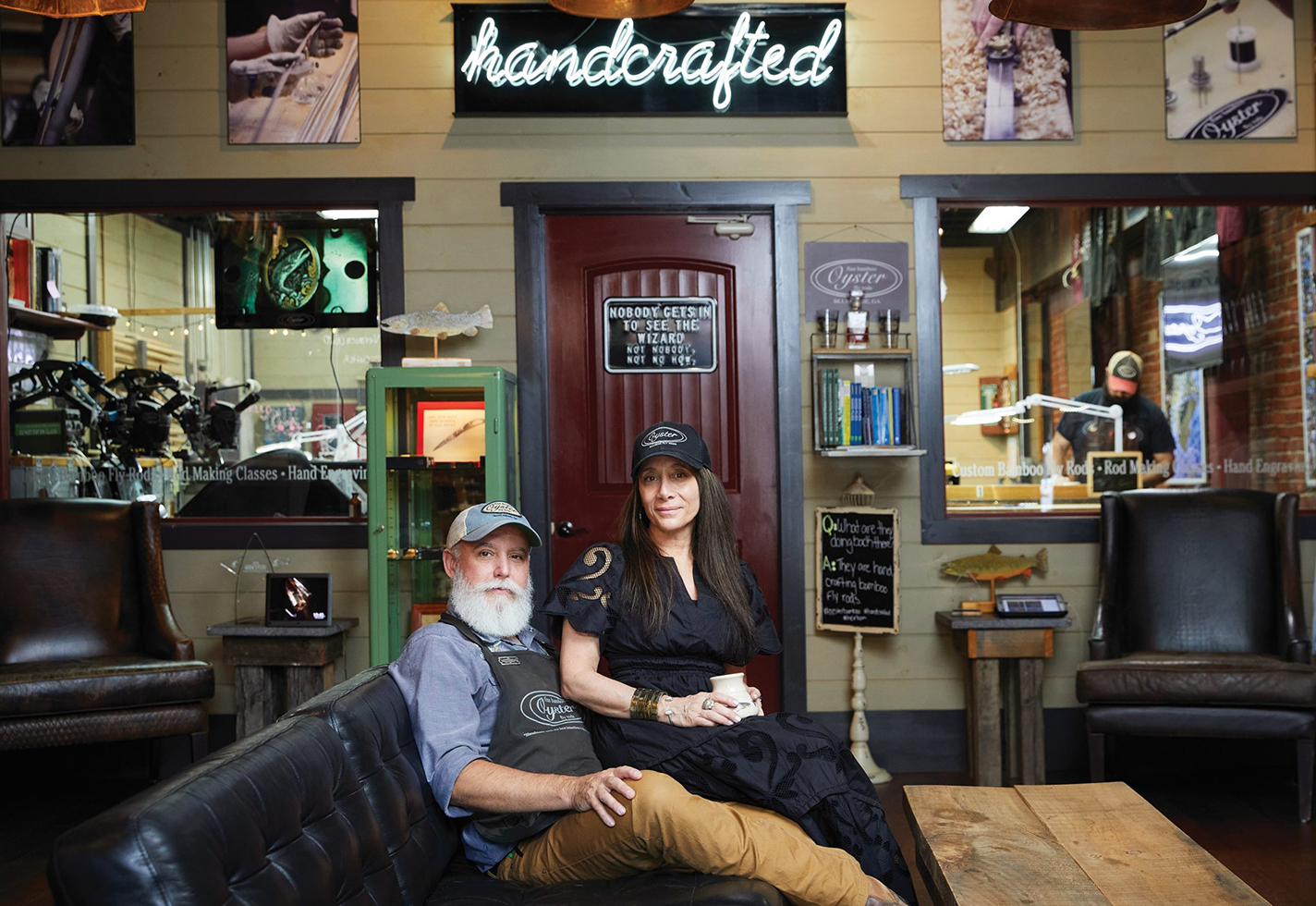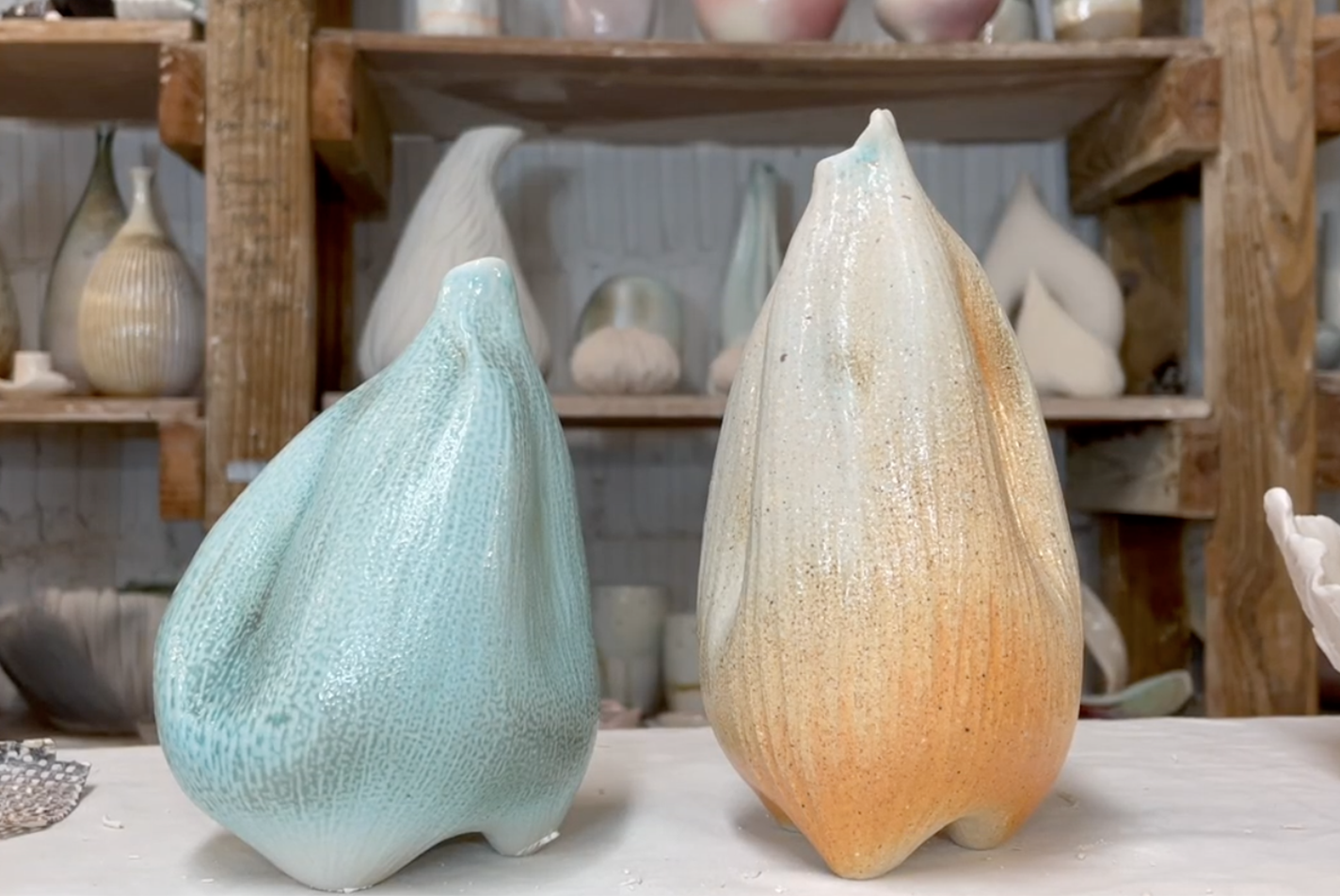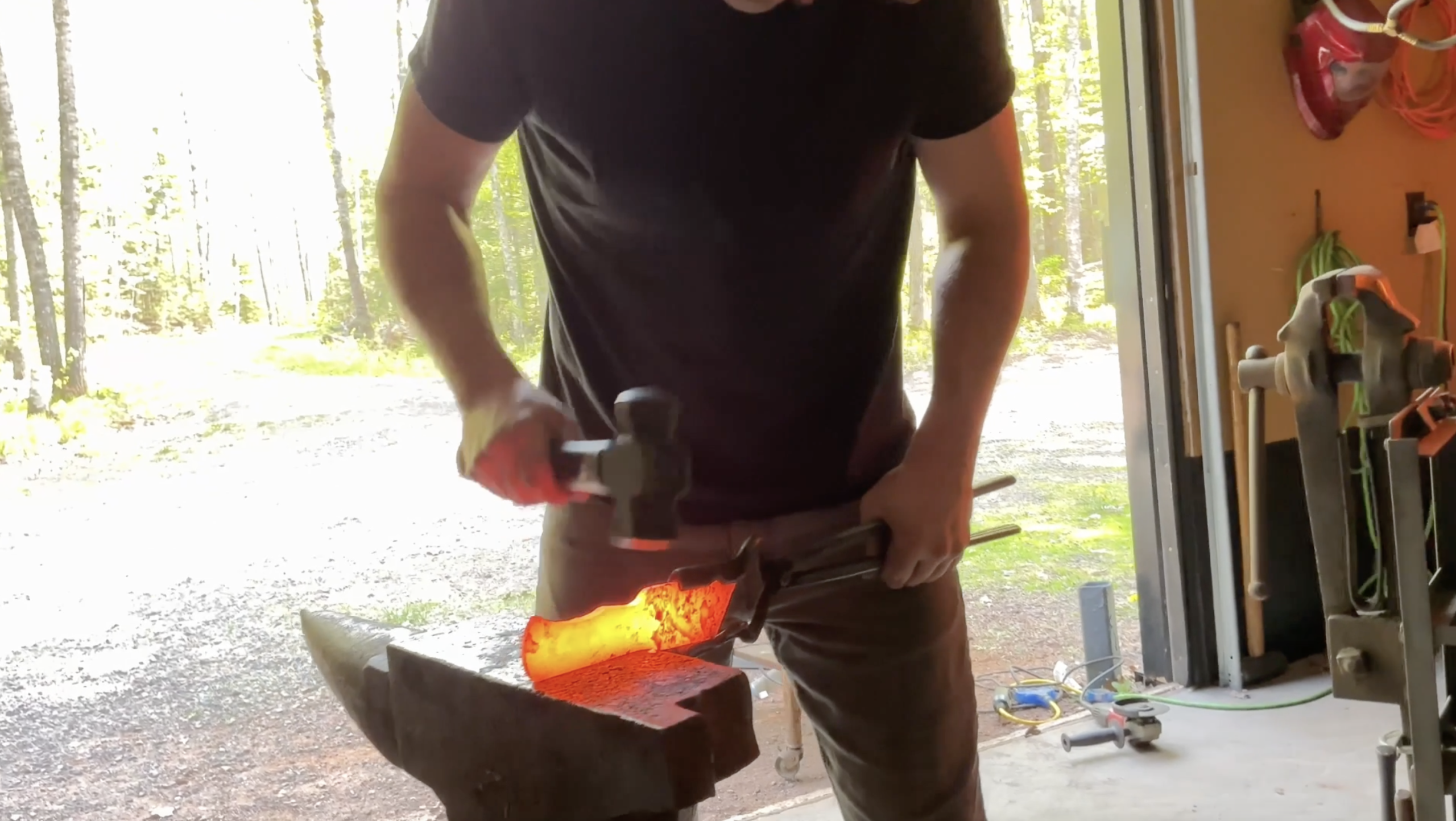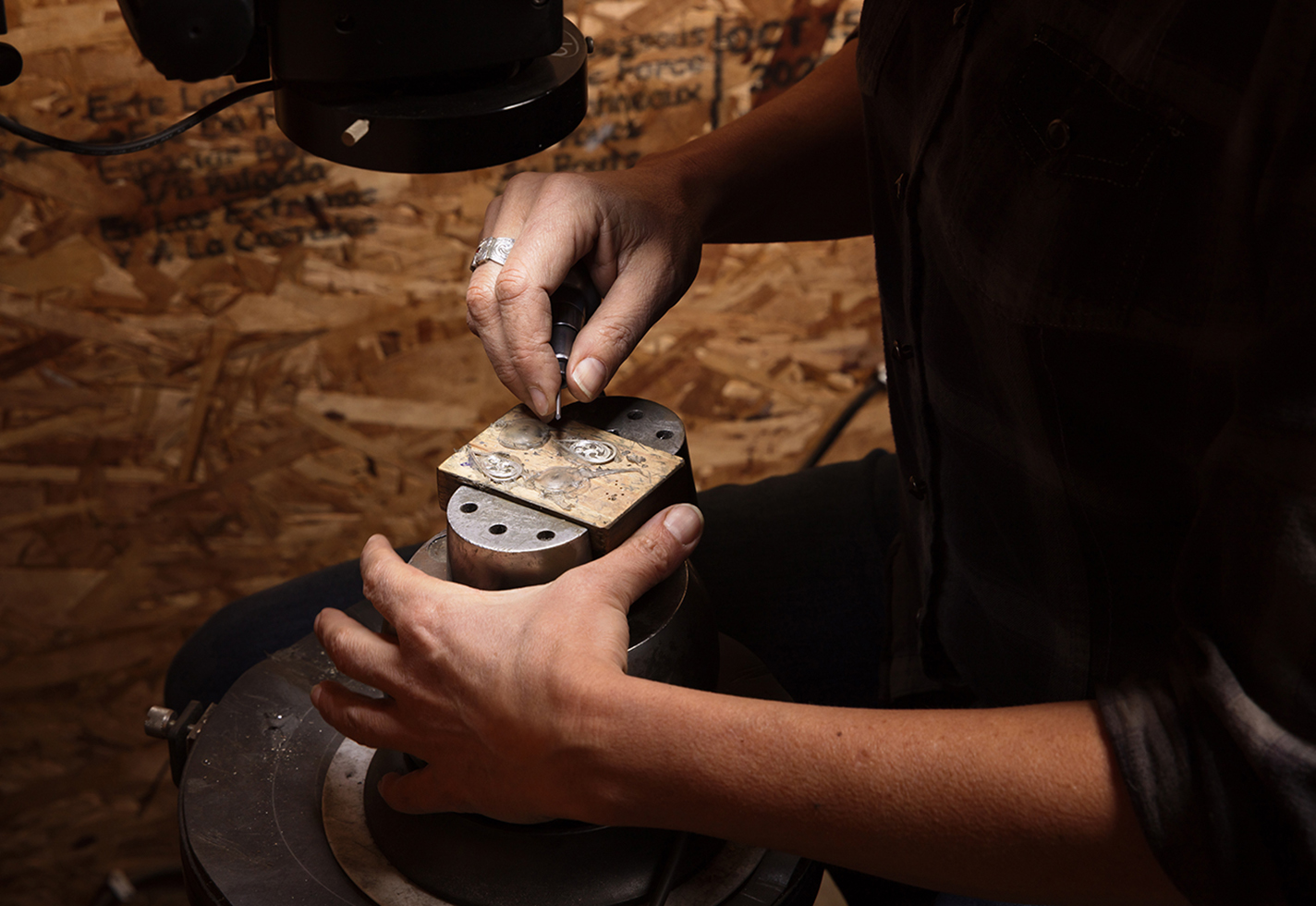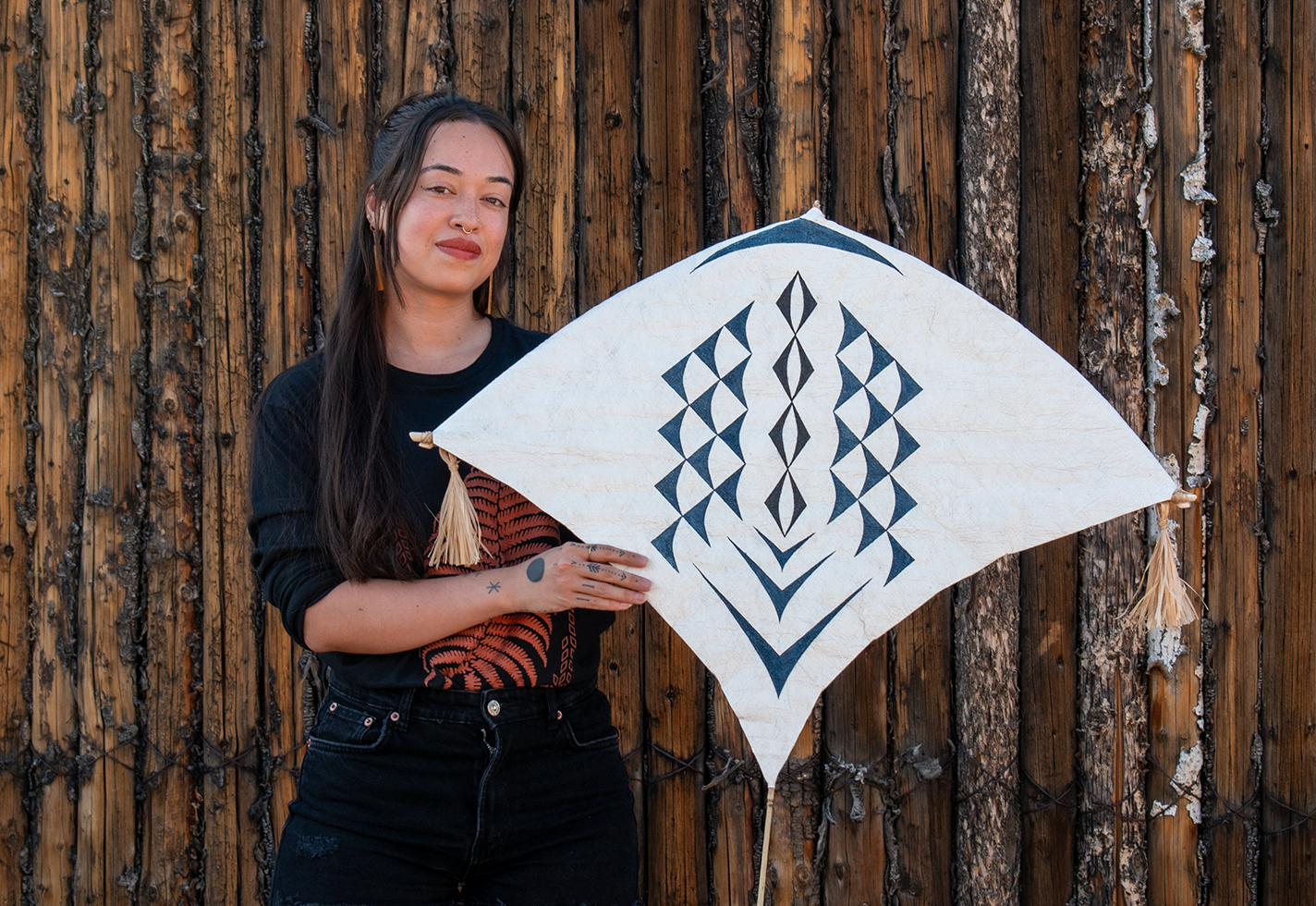Douglas Molinas Lawrence makes magic out of 72 cubic inches of wood.
After Lawrence’s parents gave him a pocket knife as a child, he compulsively carved found sticks and tree limbs on his family’s farm. With a background in environmental science, forestry, and architecture, the Tennessee-based artist has carried his fascination with wood into his artistic practice. “I still always feel this sense of wonder at removing bark and discovering the unique color and grain pattern of the wood beneath,” Lawrence says. He is currently making a series of richly textured bud vases out of 6-by-6-by-2-in. blocks of wood. Read more about these vessels in “Best Buds” in the Spring 2023 issue of American Craft.
How do you describe your work or practice in 50 words or less?
I am a wood sculptor, creating functional as well as purely sculptural pieces, mostly relating to the vessel form. My process is varied, combining the use of traditional and modern tools and techniques.
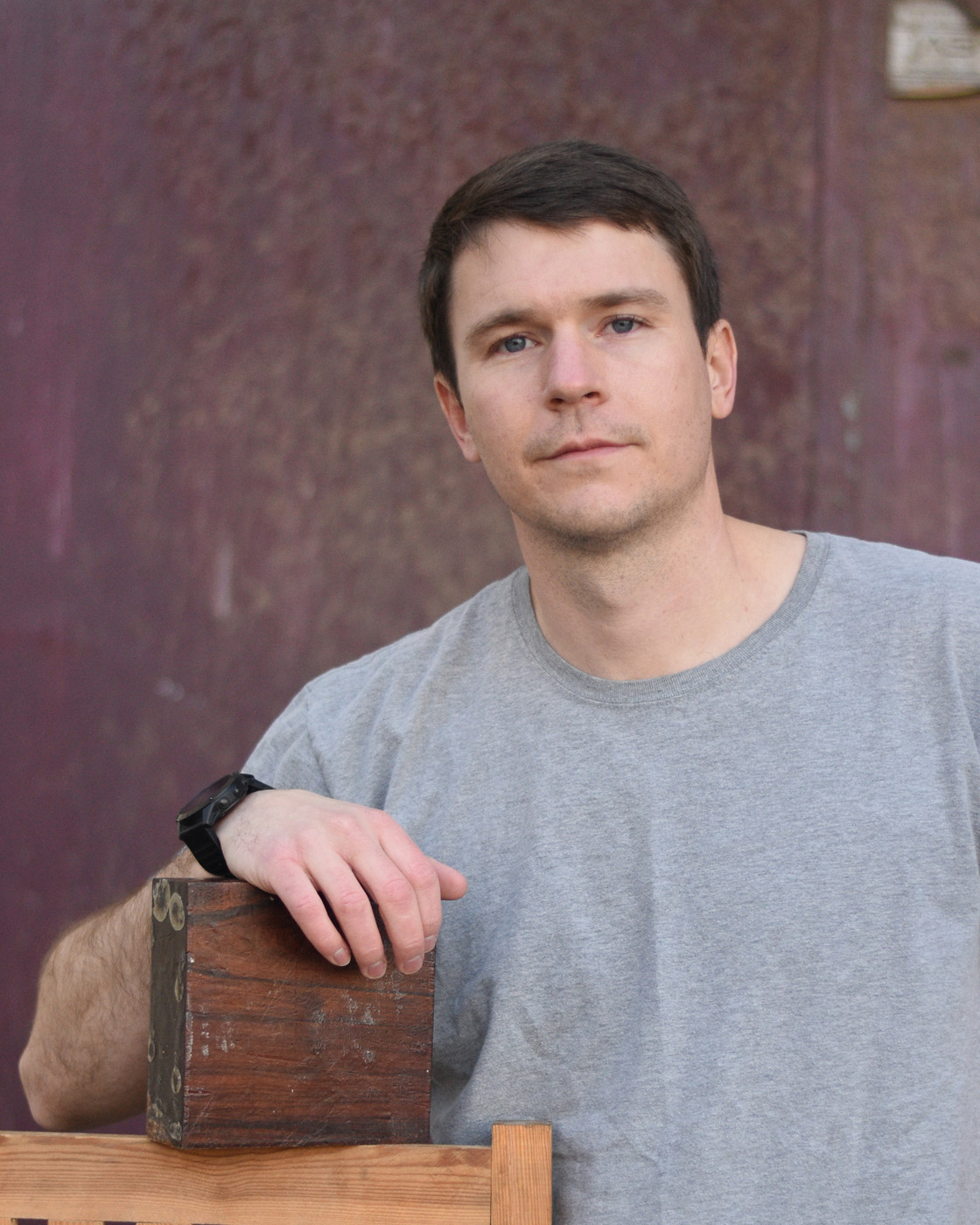
Douglas Molinas Lawrence.
